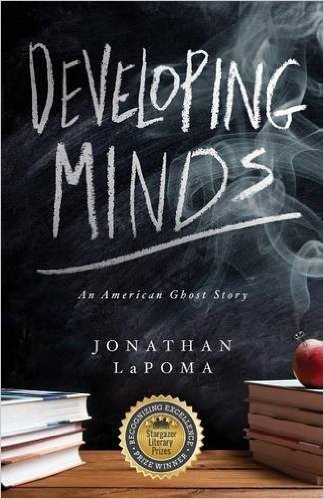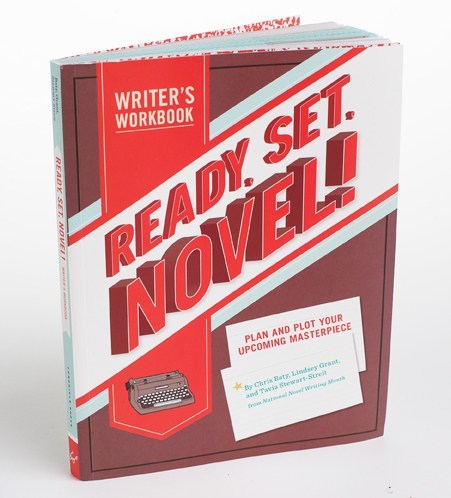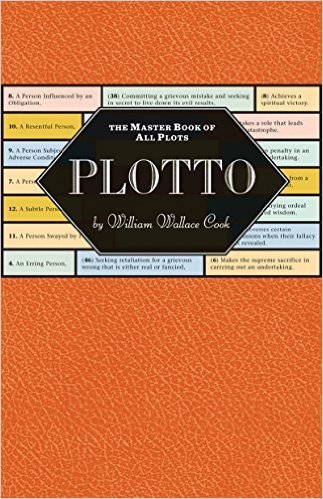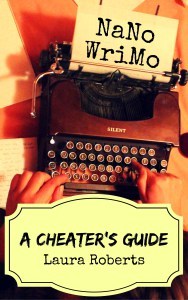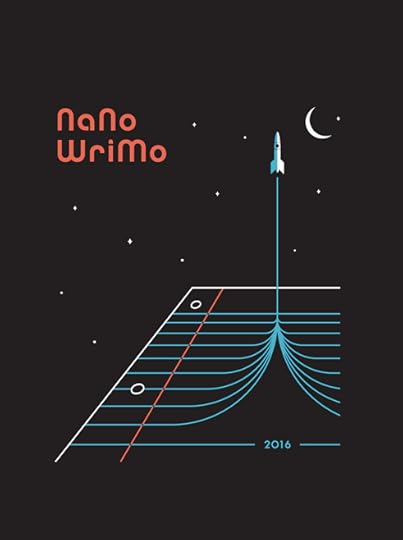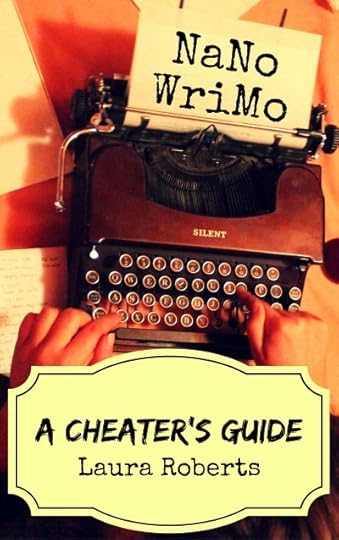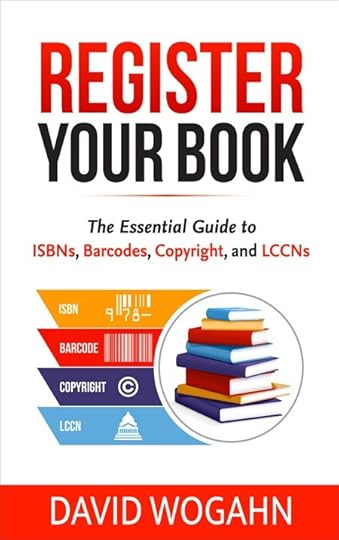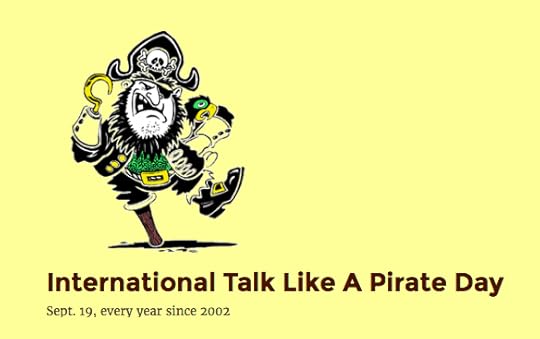Laura Roberts's Blog, page 33
October 25, 2016
Top 10 Takeaways: Jonathan LaPoma on Screenwriting
Last night I attended the monthly meeting of the San Diego Writers and Editors Guild. The guest speaker was Jonathan LaPoma, author of Developing Minds: An American Ghost Story, and winner of 101 screenwriting awards. He spoke about his screenwriting process, as well as giving the audience tips for punching up the drama in a script, and creating great dialogue. Here are my Top 10 Takeaways from his speech:
10 – Writing is writing
No matter what the genre or format, a lot of screenwriting tips cross over into tips for writing a novel. Screenwriting is simply a much more condensed storytelling method, but the focus is the same: write compelling characters, great dialogue, and tell a story that the audience will want to follow.
9 – Character drives structure
Instead of trying to use beats or impose a narrative structure on your screenplay, think about character. The actions your characters take will naturally drive the story forward, and this forward motion will become the structure. When you’re stuck, ask yourself what motivated you to write this story in the first place. Or think about the ending you’ve got in mind, and write backwards from there. What decisions do your characters need to make to end up where you want them to go?
8 – Forget chasing trends
Instead of approaching screenwriting like a businessperson analyzing the market, write from your own inspiration. Don’t chase the trends, because what’s hot now will be cold by the time you try to sell the script. Just write stories that are important to you, and that personal touch will stand out in a sea of vampires and zombies.
7 – Conflict drives story
Conflict doesn’t mean people yelling at each other all the time. It just means there’s a barrier between what a character wants and their actually getting it. You must have conflict in your story. The conflict is the story. As an example, if Batman decides he’s too tired for fighting crime, and this time he’s going to sit things out, you’ve got no movie. Even if that’s what he really wants to do, your story has to pull him back into the action.

C’mon, Bruce. Put on the suit!
6 – How long is too long?
Back in the day, Hollywood scripts used to be 90 to 120 pages. These days, 120 pages is too long. About 100 pages, or even 90, is the preferred length for a feature-length film script.
That being said, don’t pressure yourself to write to this page count in your first draft. Just get it all out on paper, then go back for revisions, and you’ll likely add pages as you go.
5 – Work your dialogue
Quoting Robert McKee (Story), LaPoma said: “Dialogue should have the swing of everyday talk, but content well above normal.” Make sure your dialogue is always doing double-duty, not just restating the visuals onscreen. Develop character and move the action forward. Cut anything that isn’t doing one or both of these things. And don’t bother with all the extraneous “Hi, how are you?” types of small talk we use in everyday life. Just cut straight to the heart of the matter.
Also remember that dialogue has the following specific functions:
Moving the story forward
Revealing character through word choice, cadence, content
Communicating information
Creating conflict
Expressing emotion
4 – Something has to change
The main character is typically the one that changes, during the course of a film. But that isn’t always the case. LaPoma mentioned Leaving Las Vegas as an example of a film where the main character remains the same, whereas secondary characters change after coming into contact with him. And sometimes it’s not the characters who change, but the viewers.
3 – Make it easy
Make it as easy as possible for someone to stay engaged and keep reading your script. Keep your chunks of dialogue down to three or four lines. Break up long monologues with actions. Producers are often afraid to take chances, and want to stick with what they know, so make them feel like your script fits this mold.
2 – Show, don’t tell
Every writer has heard this advice, at some point, but what does it really mean? LaPoma offered a writing exercise to help, citing the 2011 silent film The Artist, as inspiration: try to tell the story without words. If you can do this, you’re doing all the heavy lifting with visuals instead of dialogue.
1 – Write a damn good script
How do you do that? Write about characters people will care about. Cut anything that pulls readers out of the story. Study the craft. Learn how to pitch.
Reading List
Want to learn more about writing a damn good script? Here’s LaPoma’s recommended reading list:
Story by Robert McKee
The Screenwriter’s Bible by David Trottier
Adventures in the Screen Trade by William Goldman
Related Posts
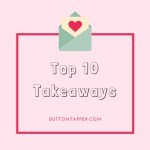 Top 10 Takeaways: David Wogahn on Metadata
Top 10 Takeaways: David Wogahn on Metadata
 Top 10 Takeaways: Antoinette Kuritz, Founder of the La Jolla Writer’s Conference
Top 10 Takeaways: Antoinette Kuritz, Founder of the La Jolla Writer’s Conference
 Creating a writer’s resume and clips – tips for the 21st century
Creating a writer’s resume and clips – tips for the 21st centuryThe post Top 10 Takeaways: Jonathan LaPoma on Screenwriting appeared first on Buttontapper Press.
October 24, 2016
#NaNoPrep: 1 Week Left!
There’s just ONE WEEK LEFT to plan this year’s NaNoWriMo novel! Are you ready?
If the answer is “HELL NO!” and you’re freaking out at this point, here are three simple things you can do to prep for November 1.
3 – Make a list
I recently bought a copy of the official NaNoWriMo writer’s workbook, Ready, Set, Novel!, which recommends writing a “love list.” This is, quite simply, a list of all the things (and places!) that excite or inspire you. They can be anything that gets your motor running. Scribble them on a sheet of paper or in your favorite notebook, and once you’re done, pick 10 that you’d like to include in your novel. Congrats: You’re on your way!
2 – Audition some characters
Now that you’ve got some ideas for what your book might be about, let’s think about characters who will appear in your story. Will they be larger-than-life, over-the-top sorts? Or quieter, ponderous people? What kinds of weaknesses or faults do they have? What do they do for a living? Have they got any pet peeves, nervous tics, guilty pleasures, secret talents, hidden fears? Start auditioning your characters. Try interviewing them, or pick a celebrity ringer that you can use as inspiration for the way they look, talk, and move through a room.
1 – Pick a plot, any plot!
One of my favorite writing tools is a thick, orange hardcover called Plotto. It’s a strange invention, really, as it claims to be “The Master Book of All Plots.” Created by William Cook and first published in 1928, this book has tons of plots to choose from. You can flip through and point to a page at random, or browse through the different types until you find one that fits.
Alternately, Ready, Set, Novel! suggests an activity called the Plot Machine, which requires Post-It notes. You place the Beginning, Climax, and Ending on a timeline, and then start filling in the blanks with additional events until you’ve got a full plot arc from start to finish.
Planning to do NaNoWriMo?
If so, you’ll want to join my mailing list to get a free copy of my book, NaNoWriMo: A Cheater’s Guide, as well as a word tracker and weekly tips for getting that novel done!
Related Posts
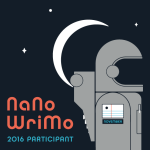 Top 10 #NaNoWriMo Prep Tips
Top 10 #NaNoWriMo Prep Tips
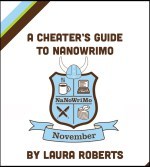 I’ve been cheating…
I’ve been cheating…
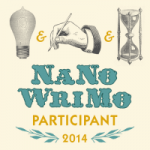 The Winner’s Guide to Kicking NaNoWriMo’s Butt
The Winner’s Guide to Kicking NaNoWriMo’s ButtThe post #NaNoPrep: 1 Week Left! appeared first on Buttontapper Press.
October 23, 2016
5K Walk/Run/Write: 365K Club, week 42
It’s that time of the week again: time for another 365K Club word count check-in! Numbers, please…
October 8, Day 282: 775 words
October 9, Day 283: 1,120 words
October 10, Day 284: 850 words
October 11, Day 285: 790 words
October 12, Day 286: 795 words
October 13, Day 287: 1,031 words
October 14, Day 288: 770 words
Total for Week 41 = 6,131 words
October 15, Day 289: 840 words
October 16, Day 290: 1,140 words
October 17, Day 291: 785 words
October 18, Day 292: 775 words
October 19, Day 293: 780 words
October 20, Day 294: 755 words
October 21, Day 295: 1,200 words
That’s a grand total of 6,275 words for the week, 22,268 for the month of October, and 235,314 for the year!
Did I beat last week’s total?
Two weeks ago I wrote 8,220 words, which means last week I missed that total by 2,089 words. Luckily, this week I stepped it up a notch and beat Week 41’s total by 144 words. So, you win some, you lose some.
Badges!
No badges this week, although I’m hoping for a special one next week…
Goals for next week?
This weekend I’m participating in one of the two annual “5K Walk/Run/Write” marathons held by the 10 Minute Novelists. The idea is to walk or run a 5K (you can either enter an official 5K contest near you, or just map out a 5K area to walk or run – this also includes completing 5K on a treadmill if the weather isn’t cooperating), and then write 5K (5,000 words) in the same weekend.
So far I’ve completed my 5K walk/run on the elliptical at the gym…
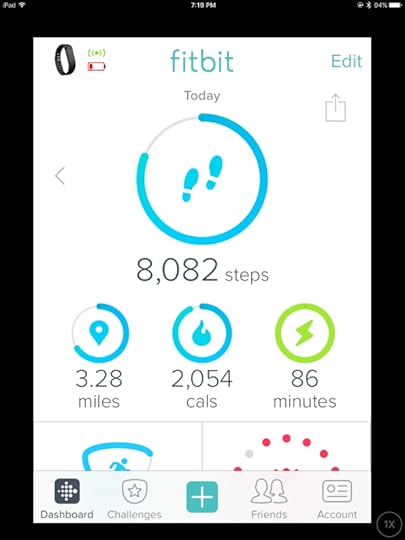
3.28 miles = ~5.28 km!
And now I need to hit 5K with my writing! I’ve logged 3,159 words so far this weekend, so I’ve just got another 1,841 left to win this thing.
Need a little extra motivation? I would highly recommend trying the 5K Walk/Run/Write one of these weekends, to push yourself mentally and physically. It’s also great practice for NaNoWriMo, which is coming up quick!
What are YOU working on this week?
And are you planning to do NaNoWriMo? If so, you’ll want to join my mailing list to get a free copy of my book, NaNoWriMo: A Cheater’s Guide, as well as a word tracker and weekly tips for getting that novel done!
Related Posts
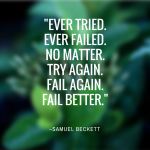 Fail Better: 365K Club, week 21
Fail Better: 365K Club, week 21
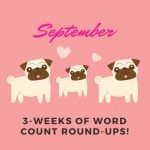 Triple word scores: 365K Club, weeks 35-37
Triple word scores: 365K Club, weeks 35-37
 That’s CAPTAIN Roberts, thank you very much: 365K Club, week 32
That’s CAPTAIN Roberts, thank you very much: 365K Club, week 32The post 5K Walk/Run/Write: 365K Club, week 42 appeared first on Buttontapper Press.
October 8, 2016
YARRRR! 365K Club, week 40
It’s that time of the week again: time for another 365K Club word count check-in! Numbers, please…
October 1, Day 275: 1,603 words
October 2, Day 276: 852 words
October 3, Day 277: 1,994 words
October 4, Day 278: 775 words
October 5, Day 279: 815 words
October 6, Day 280: 1,336 words
October 7, Day 281: 845 words
That’s a grand total of 8,220 words for the week, 8,220 for the month of October, and 222,127 for the year!
Did I beat last week’s total?
Last week I wrote 6,331 words, which means I beat that total by 1,889 words. I’m back, baby!
Badges!
Lots of badges this week! I received the September Bullseye, for hitting my word count; the Red Pen Badge, for 10+ hours of editing; the Critique Badge, for 10+ hours of critiques for others; and the much-anticipated Pirate Badge, for writing every day for five months straight.
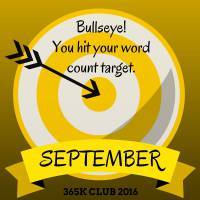
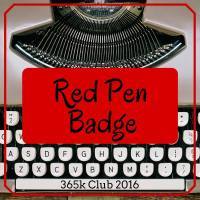
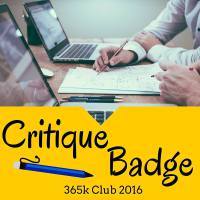
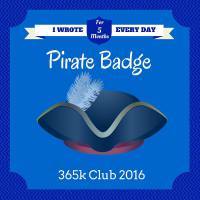
You may now refer to me as The Dread Pirate Roberts, as you wish.
Goals for next week?
This week I finished proofing the final version of my Careers in Gaming manuscript, which is set to debut in January 2017. It’s kind of amazing to me that this is my first traditionally-published solo book. So I looked up the URL listed for the LCCN for this book, and was pleased to see that the Library of Congress has dubbed me a Childrens’ Author. Check it out:
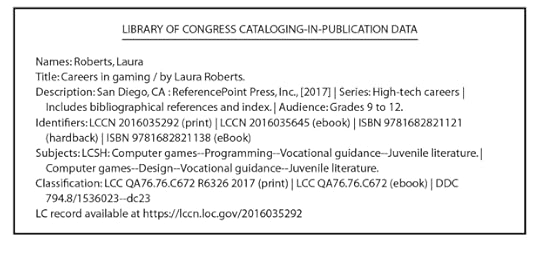
If you click on this image, you’ll see where it lists me as “Roberts, Laura (Childrens’ Author)”
I must admit, I don’t know what “1610” means, in terms of the projected publication date (it is 2016 this year, isn’t it?), but I used the listed ISBN to see if the book was on Amazon… and it is! You can check out the cover there, but can’t look inside or purchase it yet, since it hasn’t been released.
How cool is that?
Inspired my my new career as a Children’s Author, I have been thinking about writing additional stories for a younger crowd. Indeed, I’ve been pondering rewriting my Ninjas novella for kids, so I’ve been brainstorming on that topic a bit.
I have a second book in the works with the same publisher as the Gaming book, so I’m aiming to sign a contract for that one next week, and get started writing it. More info as events progress!
What are YOU working on this week?
And are you planning to do NaNoWriMo? If so, you’ll want to join my mailing list to get a free copy of my book, NaNoWriMo: A Cheater’s Guide, as well as a word tracker and weekly tips for getting that novel done!
Related Posts
 Fail Better: 365K Club, week 21
Fail Better: 365K Club, week 21
 That’s CAPTAIN Roberts, thank you very much: 365K Club, week 32
That’s CAPTAIN Roberts, thank you very much: 365K Club, week 32
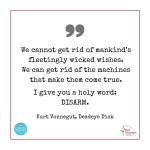 DISARM: 365K Club, week 24
DISARM: 365K Club, week 24The post YARRRR! 365K Club, week 40 appeared first on Buttontapper Press.
October 3, 2016
Top 10 #NaNoWriMo Prep Tips
As you may already know, I am a NaNoWriMo (National Novel Writing Month) enthusiast. So when October rolls around, that means it’s prime Prep Season, and I start to get a little giddy.
Additionally, since I am a confirmed NaNoWriMo Rebel (aka Cheater), this also means it’s the time of year when I start pondering which of my WIPs I will bring into the wonderful world of NaNoWriMo, scrubbing and polishing and writing additional words to create a much more completed manuscript.
Basically, it’s house-cleaning for my mind – and my hard drive full of ideas.
Which brings me to today’s Top 10 List. If you’ve never participated in NaNoWriMo, here are my 10 prep tips for a month of writing and creativity-fueled mayhem.
10 – Participate in #NaNoPrep
Check the official NaNoWriMo website and you’ll find a hotbed of activity happening across the U.S. this October. It’s NaNo Prep, with the accompanying Twitter hashtag (#NaNoPrep), and you can probably find at least one local activity to join for in-person advice and support as you plot your novel.
9 – Study up
Even if you can’t make it out to a live event, there’s tons of advice – both written and video – available for anyone interested in learning more about novel structure, character development, plotting, or simply NaNo survival. Study the NaNo Prep Resource Library for more information.
8 – Choose a side
Are you a Planner or a Pantser?
Here’s how NaNoWriMo officially describes the two:
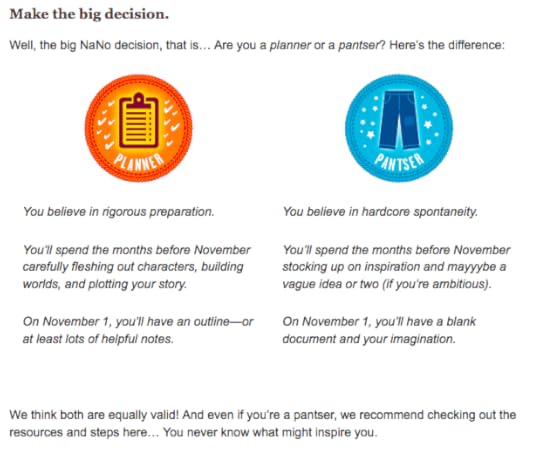 I am a reformed Pantser, which means I am absolutely vehement about outlining prior to November 1st. If you’re a combination of the two, you may be a “Plantser,” which is someone who likes planning and organization, but also wants to leave room for spontaneity in their writing. And that’s basically how I view outlining, so if anything, I am probably more Plantser than strict Planner. After all, who wants to only stick to the map when you can go off-roading now and then?
I am a reformed Pantser, which means I am absolutely vehement about outlining prior to November 1st. If you’re a combination of the two, you may be a “Plantser,” which is someone who likes planning and organization, but also wants to leave room for spontaneity in their writing. And that’s basically how I view outlining, so if anything, I am probably more Plantser than strict Planner. After all, who wants to only stick to the map when you can go off-roading now and then?
7 – Show your flair
Every year, NaNo HQ creates new participant flair: buttons and badges you can use on your website and social media pages. I like to add their banners to my Twitter and Facebook pages, to show that I’ve committed myself to another year of noveling mania. Sometimes I even get creative and design my own headers, using the official theme as inspiration.
Here’s this year’s badge:
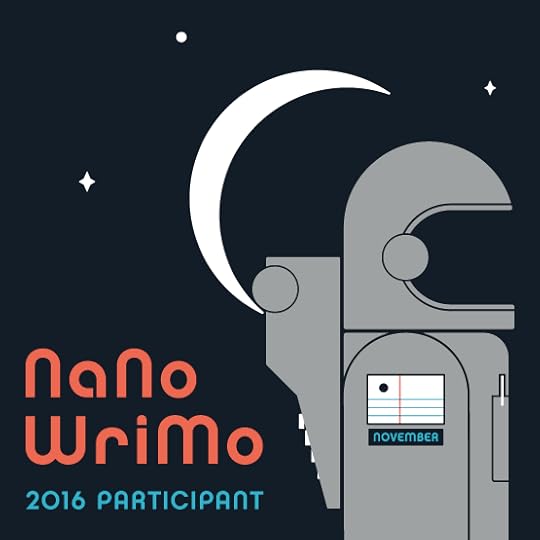 I get the feeling there are going to be a lot of space-themed stories this year, and more than a few robots as well!
I get the feeling there are going to be a lot of space-themed stories this year, and more than a few robots as well!
6 – Ponder participation
Every year, I tell myself that I will join in on all the fun local activities that take place in San Diego. And then, every year, I usually get caught up in my writing and figure “Eh, why bother leaving the house?”
This is, to my mind, a mistake. Writing is an inherently solitary activity, but NaNoWriMo is definitely about the social side of writing. It encourages participants to step outside of their homes and coffee shops, to attend write-ins with other writers, to race one another (online or in person) with word sprints, and to make writing fun.
November is National Novel Writing Month. That means everyone you meet could be writing a novel. How flipping cool is that?!
So yes, please, find your local writing tribe and force yourself to leave the house to meet some of them.
This year, I am absolutely going on the Lesser Train Escape, one of the San Diego group’s signature activities, where Wrimos board the train in Oceanside and ride together to LA, writing (or talking about writing) along the way. It’s really affordable ($10 for a day pass), and it’s a fun one-day activity that won’t take you too far away from your writing desk. What kinds of activities will you pledge to participate in this year?
5 – Grab some gear
I, personally, am inspired by having nice writing gear. And NaNoWriMo’s stuff is good quality, whether we’re talking t-shirts, mugs or writing utensils. If you really want to help motivate yourself to stick with your novel, I would highly recommend supporting the NaNoWriMo folks with a purchase from their Store.
This year’s t-shirt is space-themed (and only costs $16.67 – which is based on the number of words you need to write every day in order to hit 50K by the end of the month), but if that doesn’t get your motor running, you can always grab one from NaNos past!
4 – Pack your Survival Kit
What do you need to help you succeed as a writer? The essentials will make up your “Survival Kit.” Here are some suggestions for what to include:
A favorite mug + your beverage of choice
Laptop, tablet or desktop computer
New notebook, for doodling, sketching, brainstorming and dreaming
Several pens (just in case!)
A copy of No Plot? No Problem! and/or Ready, Set, Novel!
Epic novel-writing playlist
Timer (for word sprinting, and to remind you to get up and stretch every hour)
3 – Set up Scrivener
If you’re a serious writer, you’re probably already familiar with Scrivener. If this is your first NaNoWriMo, you may be shaking your head right now, wondering what on earth I’m talking about. Writing software? Isn’t Microsoft Word good enough?
My answer is: yes and no.
Scrivener is basically the Porsche of writing software. It’s fast, it’s stylish, it’s full of bells and whistles that your average family sedan just doesn’t have. And it’s extremely helpful for large projects, like novels, because it will help you organize your writing in ways that Word can’t.
I have become a convert, and do almost all of my writing in Scrivener these days.
It takes a little getting used to, and some setup time to make sure you’ve got things the way you want them, but once you have your software set up, everything will just flow. I love the simplicity of being able to drag and drop chapters, rather than having to cut and paste and fumble for the right place to put things. Plus, Scrivener saves your work automatically. And it’ll even save multiple versions of the same project, if you want to move things around and you aren’t sure whether your cuts will actually work.
In short, it’s really worth the price and during NaNoWriMo they offer a 30-day trial period to participants. So give it a whirl and see what you think!
2 – Start your outline
Okay, so how the hell do you create an outline, anyway?! Never fear: I have written two blog posts on this very subject, to help illuminate my own process and give you some ideas about how to avoid the feeling that writing an outline will kill your creativity.
I would also recommend K.M. Weiland’s Outlining Your Novel (and the accompanying Workbook) for those who want extremely detailed instructions (and lots of good reasons) for outlining.
1 – Join me!
Never won NaNoWriMo before? You need to start cheating! Join my mailing list to get a free copy of my book, NaNoWriMo: A Cheater’s Guide, as well as a word tracker and weekly tips for getting that novel done.
Related Posts
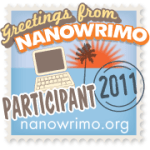 Let’s write novels together: NaNoWriMo 2011
Let’s write novels together: NaNoWriMo 2011
 The Winner’s Guide to Kicking NaNoWriMo’s Butt
The Winner’s Guide to Kicking NaNoWriMo’s Butt
 #NaNoWriMo prep: The Simple Art of Murder
#NaNoWriMo prep: The Simple Art of MurderThe post Top 10 #NaNoWriMo Prep Tips appeared first on Buttontapper Press.
October 2, 2016
September 365K Club check-in: Weeks 38 + 39
It’s that time of the week again: time for another 365K Club word count check-in! Numbers, please…
September 17, Day 261: 729 words
September 18, Day 262: 760 words
September 19, Day 263: 780 words
September 20, Day 264: 860 words
September 21, Day 265: 900 words
September 22, Day 266: 800 words
September 23, Day 267: 755 words
Week 38 Totals = 5,584 for the week, 14,906 for the month
September 24, Day 268: 785 words
September 25, Day 269: 805 words
September 26, Day 270: 795 words
September 27, Day 271: 785 words
September 28, Day 272: 1,340 words
September 29, Day 273: 770 words
September 30, Day 274: 1,051 words
That’s a grand total of 6,331 words for the week, 31,237 for the month of September, and 212,716 for the year!
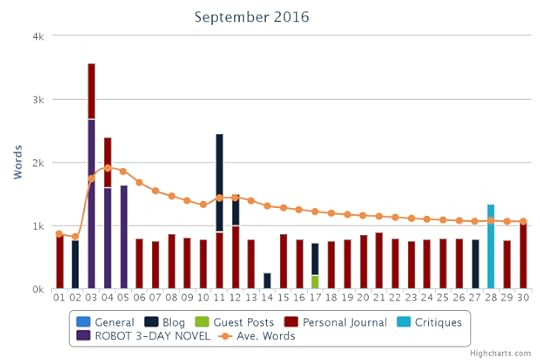
Did I beat last week’s total?
This week I beat my week 38 total by 747 words, which means… well, I don’t suck at writing, I guess. Seriously, this month has not been very productive for me, but I know we all have our slumps, so I’m doing my best to let this one be in the past and focus on making some good October goals to get myself back on track.
Badges!
No badges were given to me this week, although I know I’ve got a Bullseye badge coming, as well as the next level up on the daily writing ladder.
Goals for next week?
Like I said, September was a bit of a bust for me, in terms of writing output. Although I continued to write every day, I really only cleared the bare minimum. Usually my daily word counts were achieved by writing personal journals, rather than working on any of my works in progress.
As I continue to meet with my Accountability Group, I think I know the reason for this slump: I’m not really sure what I want to be writing anymore. You see, although I know what I find fun to write, and I know what kinds of things I have to write for work, I still haven’t quite hit upon the sweet spot of Writing I’m Good At and Writing That Pays Well.
As most everyone who’s a writer will tell you, my ultimate goal is to make my living solely from writing. At the moment, I’m still in transition between several genres, and trying to work on a good strategy for how to move forward.
I do think that I have a lot of unpublished material sitting on my hard drive that I could be sending out, so I’m going to get back to doing that in the next few weeks, and I also have plans to get back to one of my previously started novels for NaNoWriMo in November, so I’m studying up on outlining and debating with myself about which book would be best to work on that month.
I’ve also signed on to write two more books for ReferencePoint Press, so I am currently in research mode for my next book.
Basically, October is shaping up to be busy, so I’m going to have to stick to a pretty strict writing schedule in order to get everything I want to write done.
So…
What are YOU up to with your writing this week?
Related Posts
 Fail Better: 365K Club, week 21
Fail Better: 365K Club, week 21
 August round-up: 365K Club, week 34
August round-up: 365K Club, week 34
 Celebrate Writing: 365K Club, week 26
Celebrate Writing: 365K Club, week 26The post September 365K Club check-in: Weeks 38 + 39 appeared first on Buttontapper Press.
September 27, 2016
Top 10 Takeaways: David Wogahn on Metadata
Last night I attended the monthly meeting of the San Diego Writers and Editors Guild. The guest speaker was David Wogahn, author of Register Your Book: The Essential Guide to ISBNs, Barcodes, Copyright, and LCCNs. He spoke about metadata, which is information about information, in relation to publishing and marketing books, packing in a ton of information in just an hour. Here are my Top 10 Takeaways from his speech:
While we might chalk up metadata as being optional (and, indeed, some of the bits and pieces he spoke about are billed as such by places like Bowker, where you can officially purchase ISBNs), it’s really not. In fact, metadata is what helps readers find your book online – and if over half of all print books are purchased online (and they are!), then you want to be sure your metadata is helping steer readers to your book instead of driving them away.
9 – ISBNs aren’t required…
If you’re publishing an ebook, you don’t need an ISBN. Hooray! But wait a minute…
8 – Unless you’re publishing a print version…
If you plan to publish your book in print, you’ll still need an ISBN. In fact, you’ll need one for every version of your book: audiobook, paperback, hardcover, etc.
7 – Free is great, if you’re on a budget
CreateSpace offers users a free ISBN. This is great if you’re on a budget, and only plan to sell your book on Amazon. Otherwise…
6 – Buy your own ISBNs if you want to be taken seriously
If you’re starting your own publishing house, even if it’s only to promote your own work, the more professional your books look to the consumer, the better. And if your book says that the publisher is “CreateSpace Independent Publishing Platform,” bookstores will not give it a second look. How to fix this? Buy your own ISBN from Bowker, the only officially licensed ISBN dealer in the U.S.
P.S. Although single ISBNs are pricey, you get a discount when you buy in bulk. You can get 10 for $295, or 100 for $575.
5 – Metadata will help you research the competition
Why would you want to research your competition? Two reasons:
To learn how to market your book, and
To understand the audience for your book.
Wogahn noted that successful self-publishers look for audiences first, instead of writing books willy-nilly. So how can you make use of metadata? Find out what categories you can put your book into on Amazon, check out the keywords your competition is using in their titles and subtitles, learn more about how series books are described, figure out how to best price your book, and even find potential reviewers and blurb writers!
4 – Write the back cover copy first
It may sound counterintuitive, but Wogahn recommends writing the back cover copy first. It will help you summarize your book, figure out how to best approach your audience and sell them on the benefits of your book, get your point across quickly, and be crystal clear about what you’re really writing about.
Another bonus? You can use the back cover copy as your Amazon description of the book, too!
3 – Personal metadata should be consistent
When it comes to personal metadata, Wogahn mentioned content topics (what are you talking about in your book and on social media?), Bios and About pages, imagery, and a branded email address. Accurate and consistent metadata is the key to success, so he recommended starting a file for Author Bios and another for Metadata, so you can be sure every piece of information will be the same across all platforms, including social media, publishers, distribution channels, and aggregators. Remember to stay on topic when blogging and using social media, and continue to develop your brand with an email address that reflects your website’s name.
2 – Metadata is forever!
Metadata is forever, so be sure these pieces of information are absolutely decided before you upload any information about your book: Book Title, Subtitle, Publisher Name, and Assigned ISBN.
You should also be sure you own and control each of the following: Domain Names, ISBNs, LCCNs, and Copyrights.
If you’ve got each of those pieces of the puzzle put together, you’re sure to live happily ever after.
1 – Go with the flow
Check out David’s Self-Publishing Flowchart for a timeline of all the different steps you’ll need to take, whether you’re planning to create an ebook or printed volume.
Related Posts
 Top 10 Takeaways: Antoinette Kuritz, Founder of the La Jolla Writer’s Conference
Top 10 Takeaways: Antoinette Kuritz, Founder of the La Jolla Writer’s Conference
 Top 10 reasons to count every word
Top 10 reasons to count every word
 Top 10 Exotic Locations in Literature
Top 10 Exotic Locations in LiteratureThe post Top 10 Takeaways: David Wogahn on Metadata appeared first on Buttontapper Press.
September 19, 2016
Talk Like A Pirate and win some booty! #giveaway
Whether you belong to the Church of the Flying Spaghetti Monster, hate Real Ultimate Power, or just love rum and booty, today is a high holy day:
It’s International Talk Like A Pirate Day!

“Once word leaks out that a pirate has gone soft, people begin to disobey you, and then it’s nothing but work, work, work all the time!”
Wait a second, not that pirate…
That’s more like it, me hearties!
Did you know that Krispy Kreme celebrates Talk Like A Pirate Day? ‘Tis true! They’ll give you a free donut for talking piratical, or a free dozen for dressing like a pirate.
Snopes has even fact-checked this one, ye scurvy scallywags.
In honor of the silliest holiday of the year (and officially recognized in both Michigan and California!), I’d also like to join in on the festivities with a giveaway of my own.
First!
Grab a copy of my pirates vs. ninjas saga, Ninjas of the 512, for the temporarily discounted price of 99¢ by using my special Talk Like A Pirate Discount Code at Smashwords.
That code: AR42K.
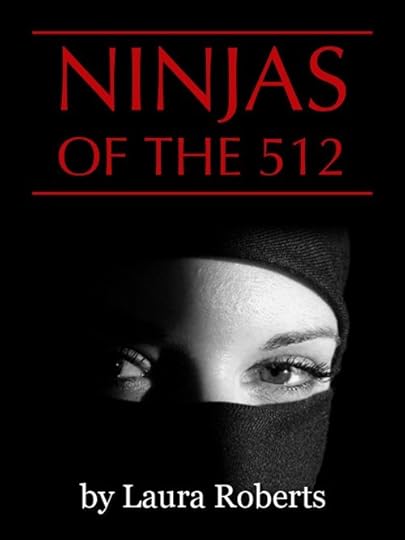
Click to buy now
Next!
Next, enter my drawing for a chance to win a Pirate Prize Pack stuffed with booty – including a signed print edition!
To enter, use the Rafflecopter drawing below.
Note that I haven’t yet chosen the winner’s t-shirt, since I’ll need to know your size. But here’s a list of all the Pirate Gear you’ll need to dress appropriately, and you can pick from one of the shirts featured.
I must admit I’m leaning towards the “To Err is Human, To Arr is Pirate” shirt, though. ;D
Happy Talk Like A Pirate Day!
Whether you win, lose, or just wind up drowning your sorrows in donuts and grog, have a Happy Talk Like A Pirate Day! ARRRRRR!
Related Posts
 Top 10 Reasons Ninjas Will Always Beat Pirates
Top 10 Reasons Ninjas Will Always Beat Pirates
 Hanging Out: 365K Club, week 22
Hanging Out: 365K Club, week 22
 International Talk Like A Pirate Day give-away
International Talk Like A Pirate Day give-awayThe post Talk Like A Pirate and win some booty! #giveaway appeared first on Buttontapper Press.
September 17, 2016
Triple word scores: 365K Club, weeks 35-37
It’s been a hectic few weeks! So much so that I missed not only last week’s update for the 365K Club word count check-in, but the week’s before that as well. So this week is a triple post, including last week, the week before that, AND this week’s numbers. Let’s roll!
2 WEEKS AGO:
August 27, Day 240: 1,516 words
August 28, Day 241: 1,901 words
August 29, Day 242: 1,773 words
August 30, Day 243: 1,358 words
August 31, Day 244: 1,110 words
September 1, Day 245: 865 words
September 2, Day 246: 775 words
= 9,298 words this week
LAST WEEK:
September 3, Day 247: 3,462 words
September 4, Day 248: 2,404 words
September 5, Day 249: 1,640 words
September 6, Day 250: 800 words
September 7, Day 251: 760 words
September 8, Day 252: 875 words
September 9, Day 253: 810 words
= 9,976 words this week
THIS WEEK:
September 10, Day 254: 790 words
September 11, Day 255: 2,452 words
September 12, Day 256: 1,000 words
September 13, Day 257: 780 words
September 14, Day 258: 254 words
September 15, Day 259: 865 words
September 16, Day 260: 790 words
That’s a grand total of 6,931 words for this week, 19,322 for the month of September, and 200,801 for the year!
Did I beat last week’s total?
This is getting confusing, what with three weeks’ worth of data, so let’s just say NO, I did not. This week was pretty pathetic, in terms of my word counts, actually, since I’ve only been writing personal journal entries, rather than working on any of my WIPs.
On the other hand, I also started taking a class on Thursday nights where I’m gathering more info for potential stories, so you could say I’m back in the research phase again. I’ll talk a bit more about that in another post.
Badges!
Since I haven’t posted these yet, I received the August Bullseye badge, for hitting my monthly target, and the Admiral badge, for writing every day for four months!
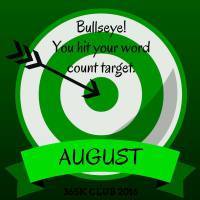
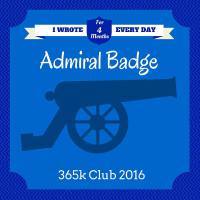
Goals for next week?
Since I’ve hit my “stretch” goal of 200,000 words for the year this week, I’ve decided to up the ante again and go for 250,000 by the end of the year. Since I know I typically tend to slow down in my writing activities towards the end of the year, getting wrapped up in various end-of-the-year events and holidays, I should easily be able to write at least another 50K by December 31st.
I do plan to participate in NaNoWriMo, which is supposed to be 50K in and of itself, but since I will be “cheating” by heading back to my robots manuscript from the 3 Day Novel Contest, I’m not quite sure how many words I’ll end up with for that one (my original target was approximately 30K).
This weekend I’m finishing up more edits on my Video Gaming book, and then starting an outline for another book for hire. Busy busy busy!
So…
What are YOU up to with your writing this week?
Related Posts
 Fail Better: 365K Club, week 21
Fail Better: 365K Club, week 21
 August round-up: 365K Club, week 34
August round-up: 365K Club, week 34
 That’s CAPTAIN Roberts, thank you very much: 365K Club, week 32
That’s CAPTAIN Roberts, thank you very much: 365K Club, week 32The post Triple word scores: 365K Club, weeks 35-37 appeared first on Buttontapper Press.
September 13, 2016
What the F? Top 3 Reasons to Let the F-Bombs Fly
Are you cussin’ with me?
If not, you should be!
Tonight, local indie bookstore Warwick’s is hosting Benjamin Bergen, who will be reading from his book What the F: What Swearing Reveals About Our Language, Our Brains, and Ourselves. In honor of this momentous occasion (and a book I immediately added to my To Read pile upon discovering its existence), I’ve decided to share with you the top three reasons I personally have for swearing, as well as allowing my fictional characters to indulge in curse words.
As you may have guessed, this particular post is full of naughty words, so brace yourself or gird your loins or whatever it is you do when prepping for an onslaught of fantastically foul language.
Ready? Set? SWEAR!
3 – Swearing is smart
A recent study in the Language Sciences journal indicates that those who swear are not, in fact, deficient in the language arts. Indeed, their vocabularies tend to be better than the average non-swearer, despite the fact that many swear words are monosyllabic. (And listen to Bergen ponder this very conundrum over at Slate, if you’re into audio.)
So who the fuck’s laughing now, smartass?
2 – Cursing connotes creativity
Indeed, swearing need not be formal or rigid. Some of the most creative use of language I know of comes from Chuck Wendig, who loves making up his own curse words like Fuck-Missile, Jizz-Archer, Douche Blizzard, Turd-Magnet (or Turd Magnate?); Butt-Dongled, Elf-Pecked Jizz-Wizard and Pube-Shellacked, Jelly-Sucking Fuck-Turnip, courtesy of his own Random Compound Vulgarity Generator.
If inventing your own curse-word generator isn’t cool AF, I don’t know what is.
There’s also the Foul-o-Matic(TM), in case you need something a bit more point and click. It called me a “slapping bogle lover,” which I don’t entirely understand, but there you go. Creativity for the win!
1 – Expletives for easy authenticity
Cursing is, simply, authentic speech. If a character (or a real-life human!) drops a bowling ball on their big toe, they’re not going to calmly mutter, “Well, fudge!” They’re going to start blasting out the curse words in a blue streak, and I guarantee you the F-bombs will be about as fast and as furious as Vin Diesel in the aptly named Chevy “F-Bomb” Camaro.

F-Bomb Chevrolet Camaro – the fastest and furious-est car Vin Diesel drives in the F&F series
Of course, all things in moderation…
If you still don’t care for curse words, I highly recommend taking a Wes Andersonian approach when ridding your manuscript of foul language: just insert the word “cuss” where every swear word might have been, as demonstrated in The Fantastic Mr. Fox:
You might also want to take a look at Jenny Hansen’s 10 Creative Ways To Express Your “Inner F-Bomb.” I particularly enjoyed her clever acronym for the word focus.
What say you?
Is cussing creative, or just a sign of an addled mind? And will you be adding Benjamin Bergen’s book to your reading list?
Related Posts
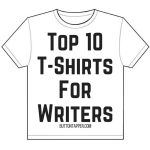 Top 10 T-Shirts for Writers (April 2016 edition)
Top 10 T-Shirts for Writers (April 2016 edition)
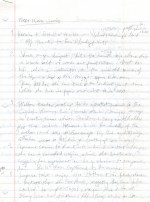 Outlining doesn’t have to blow dead bears: From brainstorm to novel
Outlining doesn’t have to blow dead bears: From brainstorm to novel
 The caffeinated hordes: 2013 NaNoWriMo prep
The caffeinated hordes: 2013 NaNoWriMo prepThe post What the F? Top 3 Reasons to Let the F-Bombs Fly appeared first on Buttontapper Press.

